
Maroua: The Gateway to Northern Cameroon's Rich Culture
Maroua, nestled in the heart of Northern Cameroon, is a vibrant city brimming with culture, history, and natural beauty. Known for its bustling markets, friendly locals, and traditional architecture, Maroua offers a unique blend of African charm and hospitality. One of the highlights of visiting Maroua is the colorful Grand Marché. This sprawling market is a sensory overload of sights, sounds, and smells, where you can find everything from handcrafted jewelry to fresh produce. It's the perfect place to immerse yourself in the local culture and pick up some unique souvenirs. Nature enthusiasts will be thrilled with the breathtaking landscapes surrounding Maroua. From the scenic Mandara Mountains to the lush Kalfou Forest Reserve, there are plenty of opportunities for hiking, bird watching, and exploring the great outdoors. Don't miss the chance to visit the nearby Waza National Park, home to a diverse array of wildlife including elephants, lions, and giraffes. For a deeper dive into the region's history, a visit to the Maroua Museum is a must. Here, you can learn about the rich cultural heritage of the local ethnic groups, including the Fulani, and see traditional artifacts that tell the story of Maroua's past. The city is also known for its exquisite traditional pottery and weaving, which you can witness firsthand in local workshops.
Local tips in Maroua
- Visit the Grand Marché early in the morning to avoid the crowds and get the freshest produce.
- Bring comfortable walking shoes for exploring the natural reserves and local attractions.
- Hire a local guide for a more informative and immersive experience at Waza National Park.
- Learn a few basic phrases in French, the main language spoken in Maroua, to help with communication.
- Try the local cuisine, such as millet-based dishes and grilled meats, for an authentic taste of Maroua.
Maroua: The Gateway to Northern Cameroon's Rich Culture
Maroua, nestled in the heart of Northern Cameroon, is a vibrant city brimming with culture, history, and natural beauty. Known for its bustling markets, friendly locals, and traditional architecture, Maroua offers a unique blend of African charm and hospitality. One of the highlights of visiting Maroua is the colorful Grand Marché. This sprawling market is a sensory overload of sights, sounds, and smells, where you can find everything from handcrafted jewelry to fresh produce. It's the perfect place to immerse yourself in the local culture and pick up some unique souvenirs. Nature enthusiasts will be thrilled with the breathtaking landscapes surrounding Maroua. From the scenic Mandara Mountains to the lush Kalfou Forest Reserve, there are plenty of opportunities for hiking, bird watching, and exploring the great outdoors. Don't miss the chance to visit the nearby Waza National Park, home to a diverse array of wildlife including elephants, lions, and giraffes. For a deeper dive into the region's history, a visit to the Maroua Museum is a must. Here, you can learn about the rich cultural heritage of the local ethnic groups, including the Fulani, and see traditional artifacts that tell the story of Maroua's past. The city is also known for its exquisite traditional pottery and weaving, which you can witness firsthand in local workshops.
When is the best time to go to Maroua?
Iconic landmarks you can’t miss
Mizao Hotel
Experience comfort and convenience at Mizao Hotel, your gateway to exploring the vibrant city of Maroua and the Far North Region of Cameroon.

Carrefour Djarma
Experience the heart of Maroua's commerce at Carrefour Djarma, your one-stop shopping destination for everyday needs and local finds.
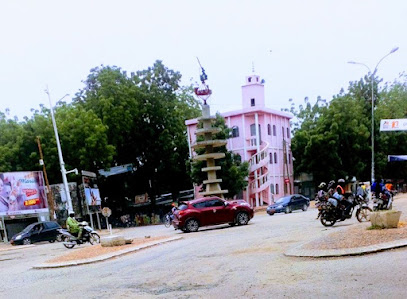
MARCHE ABATTOIR
Experience the vibrant culture and flavors of Maroua at the bustling Marché Abattoir, a sensory feast for every traveler.
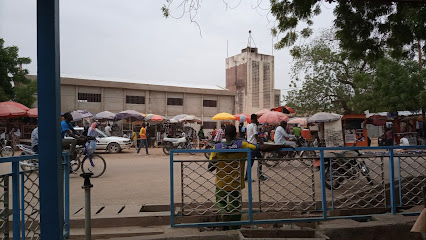
Complexe Artisanal de Maroua (CAM)
Discover authentic Cameroonian crafts at Complexe Artisanal de Maroua: leather goods, textiles, wood carvings, and pottery.
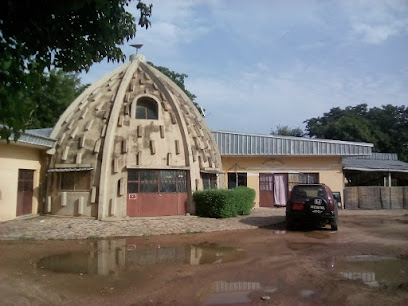
Place des Fetes de Maroua
Experience the heart of Maroua at Place des Fêtes, a vibrant landmark hosting cultural events and celebrations in a historic setting.
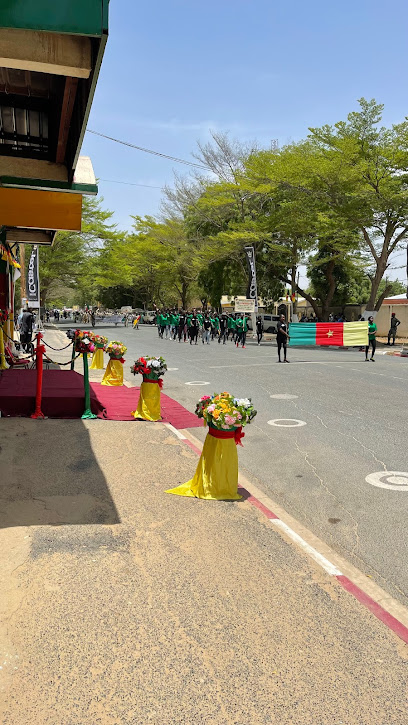
Mémorial de la bataille d'IBBA SANGUE
A historical landmark in Maroua commemorating resilience and offering a reflective journey into the region's past.
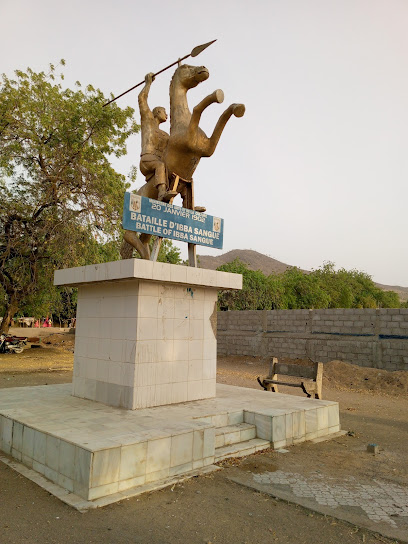
Lamidat de Maroua
Discover the Lamidat de Maroua, a historic palace offering insights into the traditional culture and governance of Northern Cameroon.
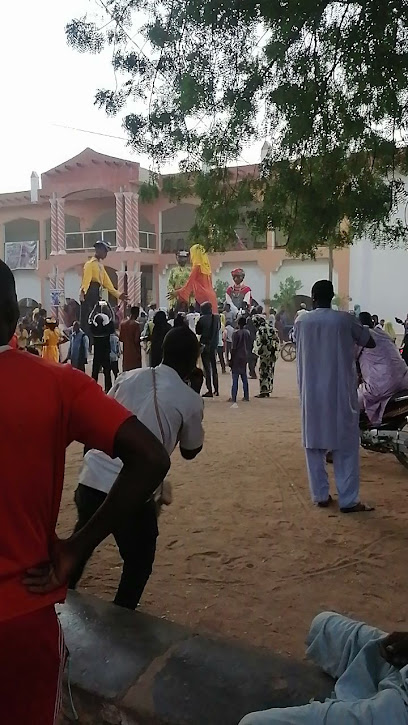
Unmissable attractions to see
Mont Maroua
Discover the breathtaking trails and rich culture of Mont Maroua, a premier hiking destination in Cameroon, perfect for nature lovers and adventurers alike.
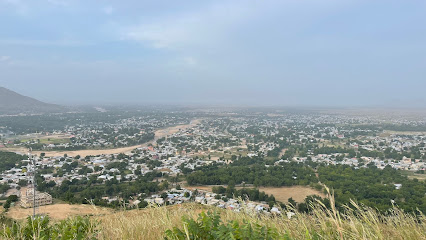
Foyer Moufou
Experience the vibrant culture and warm hospitality of Maroua at Foyer Moufou, a charming tourist attraction in Cameroon.

Kilanta Kid's
Discover Kilanta Kid's Park, a serene family-friendly oasis in Maroua, perfect for relaxation, play, and community connection amidst nature.
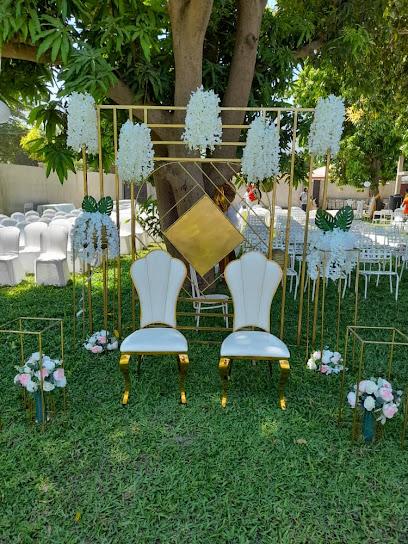
Ibraheem
Discover the vibrant artisan culture of Maroua at Ibraheem, where local crafts and traditions come to life in an unforgettable experience.

Carrefour Laïndé
Discover the vibrant culture of Maroua at Carrefour Laïndé, a bustling marketplace filled with unique crafts, flavors, and local traditions.
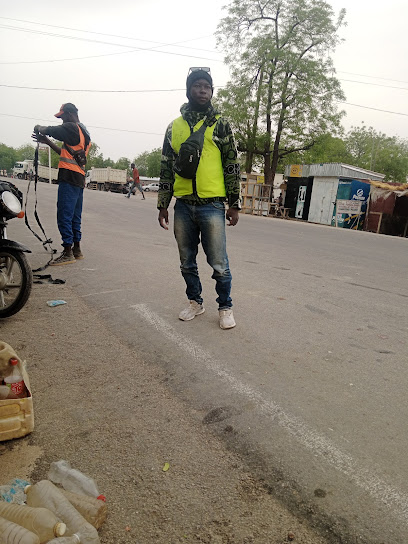
Carrefour Y
Discover the vibrant essence of Maroua at Carrefour Y, a lively tourist attraction filled with local shops, delicious food, and cultural experiences.
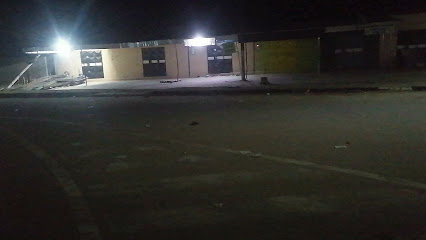
pavillon vert
Discover the serene beauty of Pavillon Vert, a lush garden oasis in Maroua, Cameroon, perfect for relaxation and nature photography.
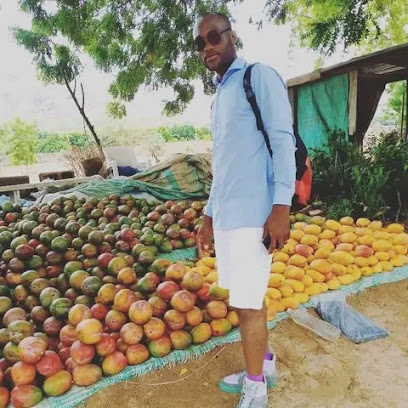
DJAMNE BATTE
Explore the enchanting Djamne Batte in Maroua, Cameroon, where stunning landscapes meet rich cultural traditions, creating a memorable tourist experience.

Florina
Explore the stunning landscapes and rich culture of Florina, a captivating tourist attraction in Maroua, perfect for all types of travelers.

YONKOLA
Explore Yonkola, a captivating tourist attraction in Maroua, where culture meets stunning landscapes in the heart of Cameroon.

Essential places to dine
Restaurant Le Kilanta
Experience authentic Cameroonian cuisine at Restaurant Le Kilanta in Maroua - a culinary gem celebrating local flavors and hospitality.
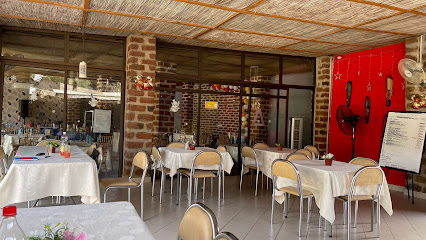
LE NOUMOU
Discover authentic Cameroonian cuisine at Le Noumou in Maroua—where every meal tells a story of local tradition and flavor.
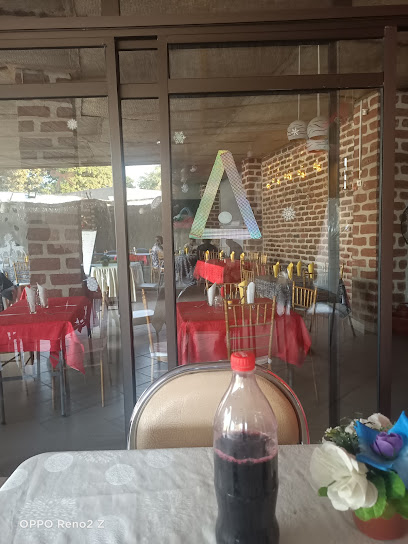
MIAM-MIAM
Experience authentic Cameroonian flavors at MIAM-MIAM in Maroua – where every meal tells a story!
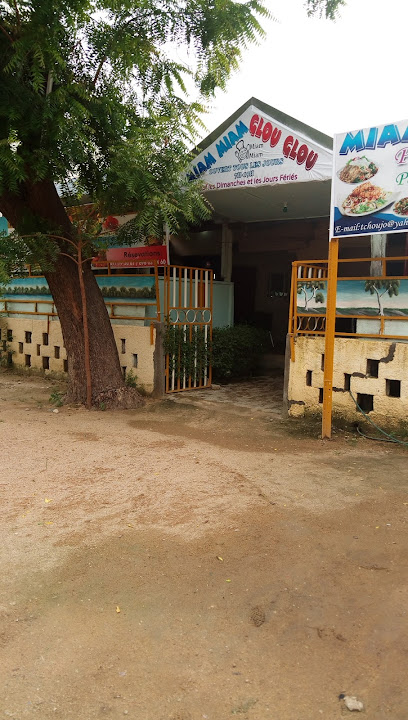
Hotel La Prudence
Experience exquisite dining at Hotel La Prudence in Maroua – where local flavors meet global cuisine in an elegant setting.
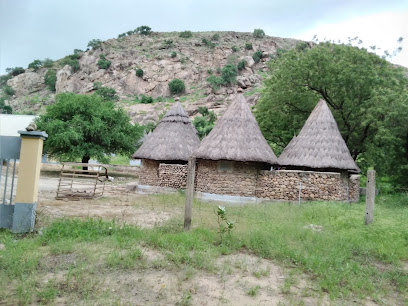
RESTAURANT LE NOUMOU DE MAROUA
Experience authentic Cameroonian cuisine at Restaurant Le Noumou de Maroua - where every dish tells a story.
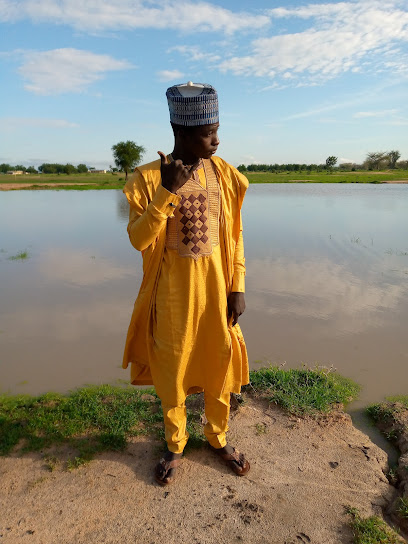
Hôtel Souvenir Abetidi
Experience authentic Cameroonian cuisine at Hôtel Souvenir Abetidi in Maroua - where every dish tells a story.

Glacier Moderne La Pyramide du Sahel
Experience authentic Cameroonian flavors at Glacier Moderne La Pyramide du Sahel in Maroua - where tradition meets modern dining.
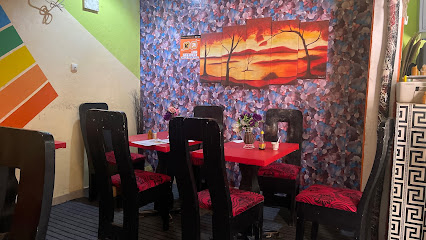
Restaurant La Bonne Adresse
Savor delicious family-friendly cuisine at Restaurant La Bonne Adresse in Maroua - where every meal feels like home.
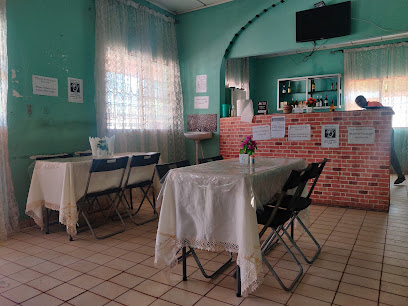
RESTAURANT MAKKAH
Discover authentic Cameroonian cuisine at Restaurant Makkah in Maroua - where tradition meets taste in every dish.
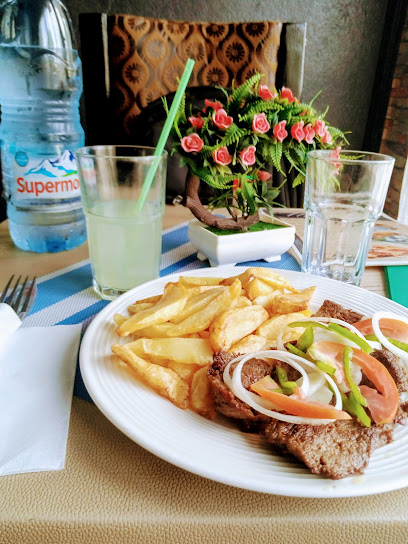
RESTAURANT LA GARGOTTE DU CENTRE
Experience authentic Cameroonian cuisine at La Gargotte du Centre in Maroua—where every dish tells a story.
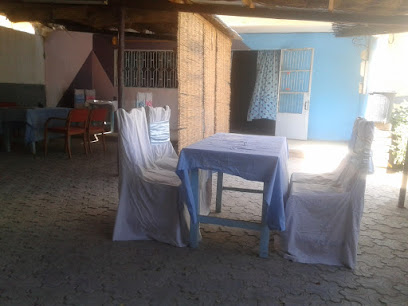
PITUARE
Experience authentic Cameroonian cuisine at PITUARE in Maroua - where flavor meets tradition!
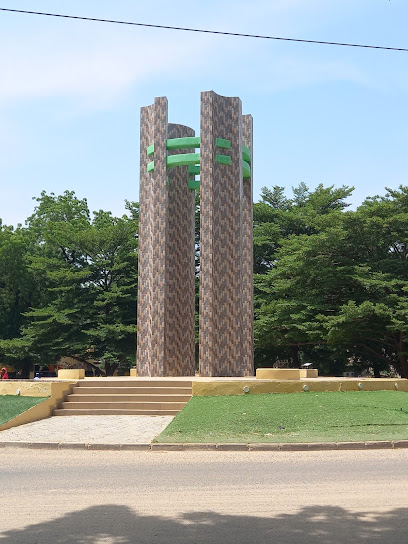
Restaurant Le Baobab
Savor authentic Cameroonian cuisine at Restaurant Le Baobab in Maroua - a must-visit destination for food lovers exploring this vibrant region.
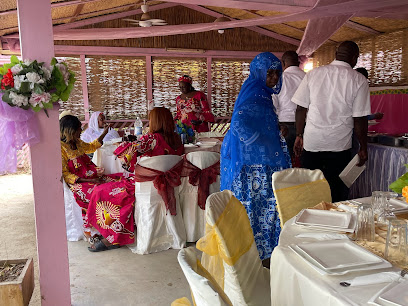
LA DJAF
Savor authentic Cameroonian cuisine at LA DJAF in Maroua - where every dish tells a story.
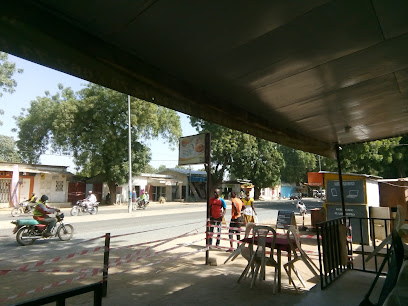
Depot Oeuf Badalou
Experience authentic Cameroonian cuisine at Depot Oeuf Badalou in Maroua - a culinary gem offering delightful dishes in a cozy setting.
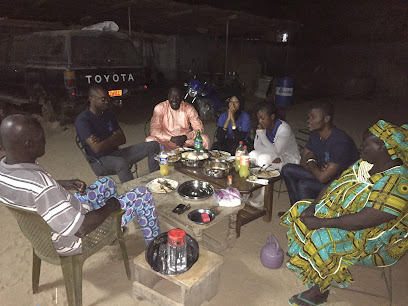
Restaurant Dalii
Discover authentic Cameroonian flavors at Restaurant Dalii in Maroua - a must-visit dining destination for food lovers.
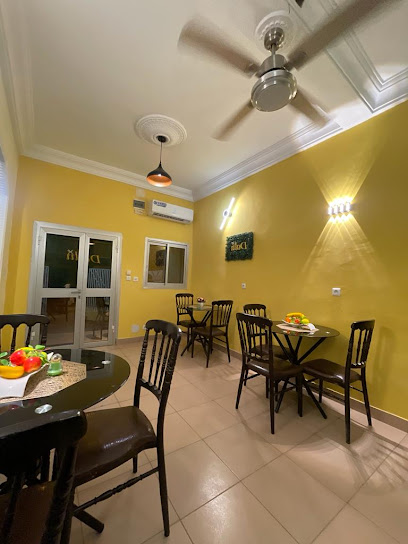
Markets, malls and hidden boutiques
Centre artisanal
Explore the vibrant Centre Artisanal in Maroua for authentic Cameroonian crafts and a taste of local culture.
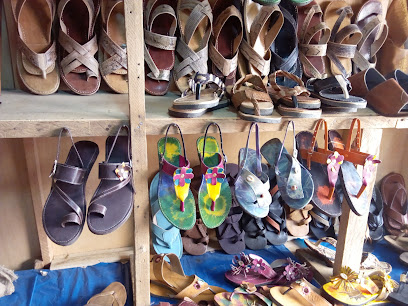
Boutique Manager
Discover local crafts, delicious cuisine, and a vibrant shopping experience at Boutique Manager in Maroua, a must-visit destination for tourists.
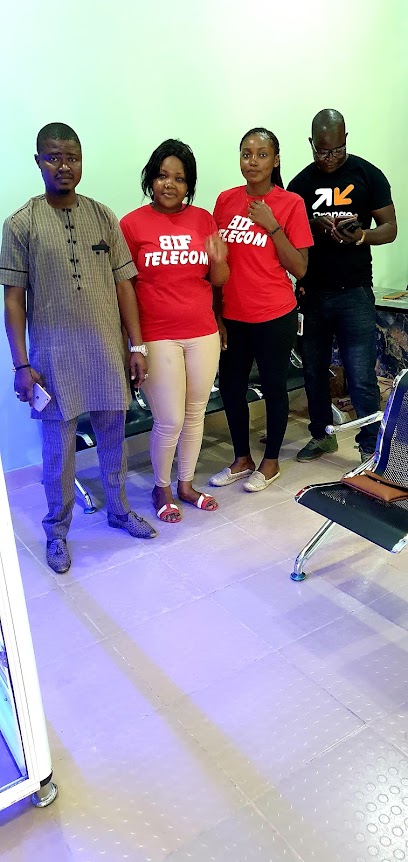
Boutique Bouba
Explore the vibrant offerings of Boutique Bouba, Maroua's premier supermarket, where local flavors and international goods meet.
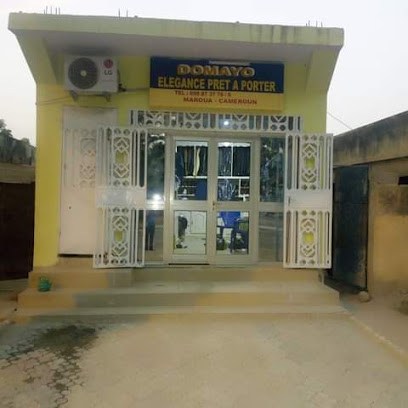
Supermarché shop smart maroua
Explore the vibrant shopping scene at Supermarché Shop Smart Maroua, where local culture and fresh produce come together in a unique marketplace experience.
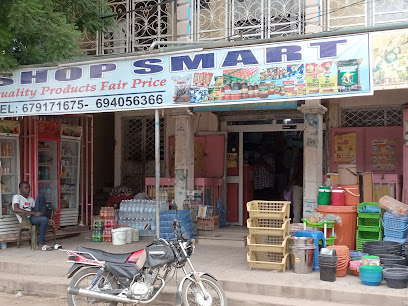
Sté des Ets A. Nziko Maroua
Explore Sté des Ets A. Nziko Maroua, a lively shopping mall in Cameroon, where local culture and modern retail meet for an unforgettable experience.

All In One
Explore the artistry of handcrafted jewelry at All In One in Maroua, where rich culture meets exquisite craftsmanship.
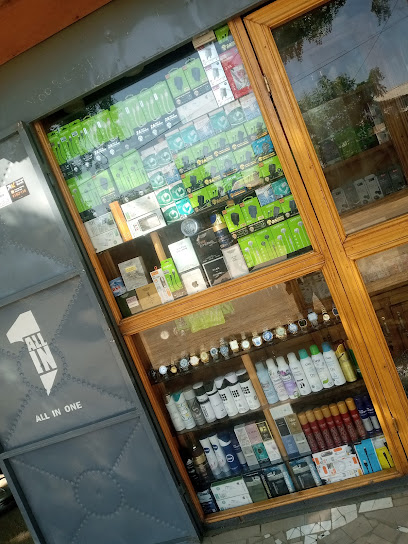
HAGADA BOLDA Commerce
Discover HAGADA BOLDA Commerce, Maroua's premier clothing store offering a blend of traditional and modern fashion styles for every traveler.
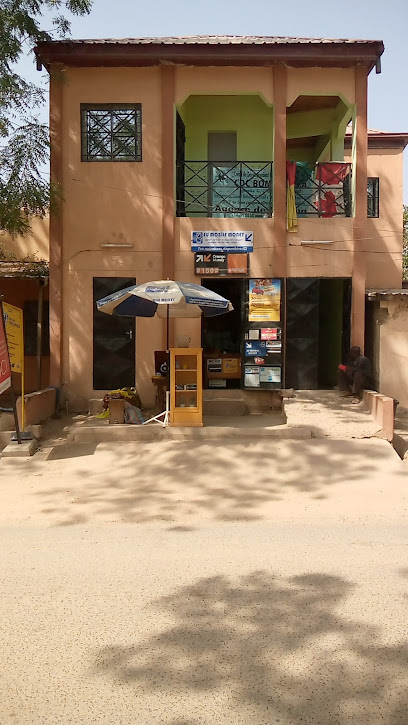
Boutique Abdouraman Yerima Gawel
Discover the essence of Maroua with organic delights at Boutique Abdouraman Yerima Gawel, a hub for fresh produce and local flavors.
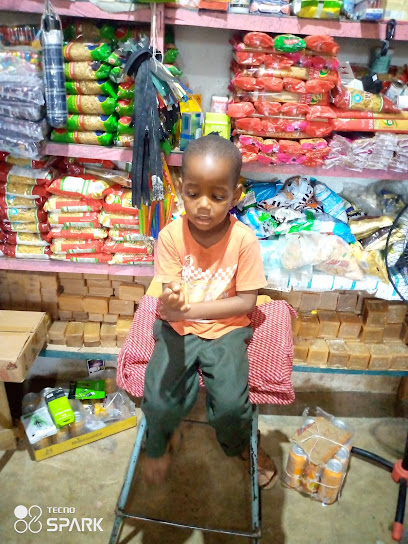
Village artisanal de Maroua
Explore the vibrant Village artisanal de Maroua for unique handcrafted gifts and immerse yourself in the rich cultural heritage of Cameroon.
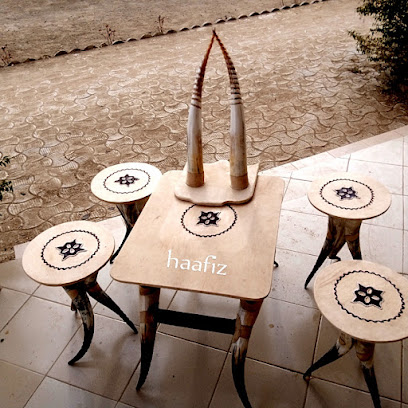
Oumarou Maliki
Discover Oumarou Maliki, Maroua's premier shopping destination blending local culture with modern retail experiences.
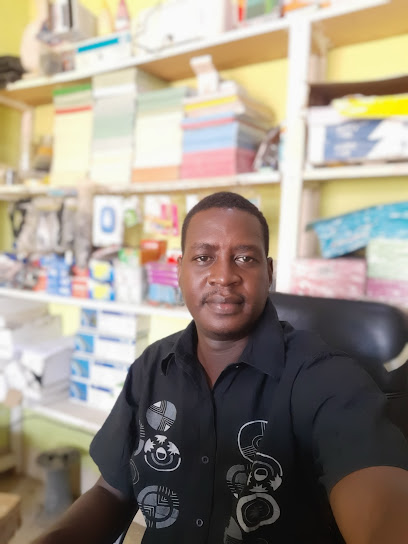
Boutique Nouroudine
Experience the vibrant culture of Maroua at Boutique Nouroudine, where local craftsmanship meets unique treasures for every traveler.

Boutique Aboubakar
Discover Boutique Aboubakar in Maroua for unique local crafts, authentic souvenirs, and a warm cultural experience in the heart of Cameroon.

Boutique Bah Dairou
Explore Boutique Bah Dairou in Maroua for unique artisanal treasures, perfect for souvenirs and gifts that embody the vibrant culture of Cameroon.

Maison du Bazin
Explore the vibrant artisan culture at Maison du Bazin - a boutique showcasing the best of local craftsmanship in Maroua.
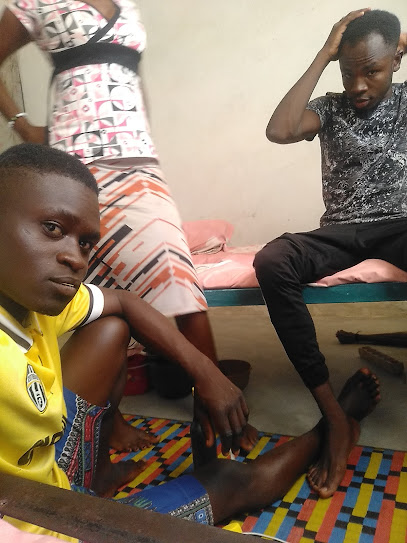
FAMOUS HOUSE
Discover the artistry of batik clothing at Famous House in Maroua, where tradition meets vibrant fashion in every stitch.
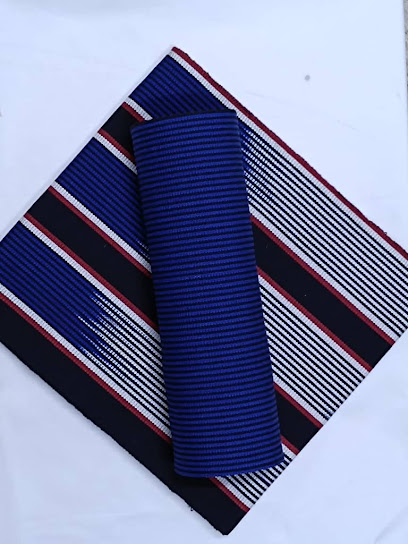
Essential bars & hidden hideouts
Fotambo Bar
Discover the vibrant nightlife at Fotambo Bar in Maroua, where friendly locals and tourists gather for drinks and great conversation.
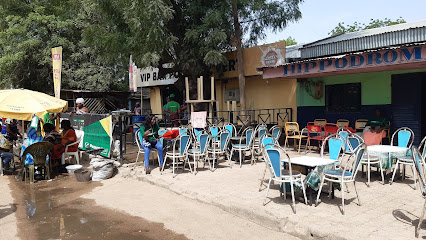
Djarako Bar
Experience the vibrant local culture at Djarako Bar in Maroua, where good drinks and warm hospitality meet.
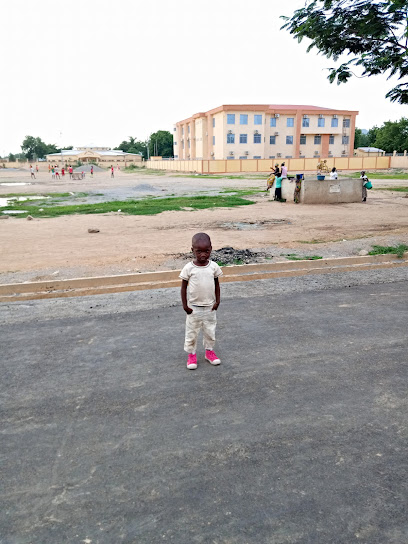
Guidandou Bar
Experience the lively spirit of Maroua at Guidandou Bar, a must-visit spot for refreshing drinks and great company.
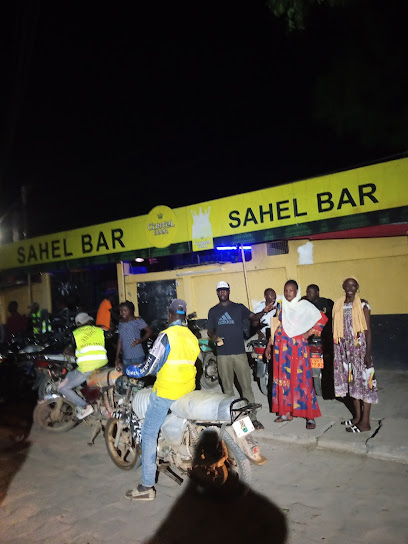
Bar Chez La Mere
Experience the lively charm of Bar Chez La Mere, a cozy bar in Maroua offering local and international drinks in a welcoming atmosphere.
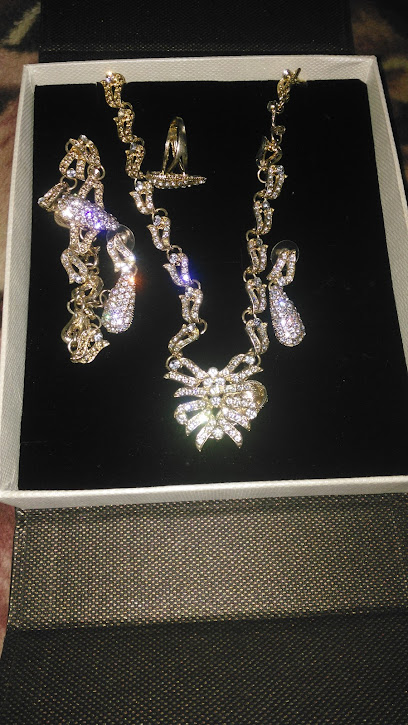
Nollywood Bar
Discover the vibrant nightlife at Nollywood Bar in Maroua, where local culture meets a lively atmosphere for an unforgettable experience.
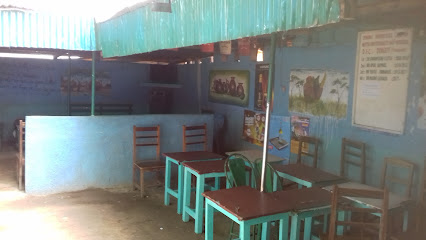
Montagnard Bar
Discover the lively charm of Montagnard Bar, where refreshing drinks and local culture merge in the heart of Maroua.
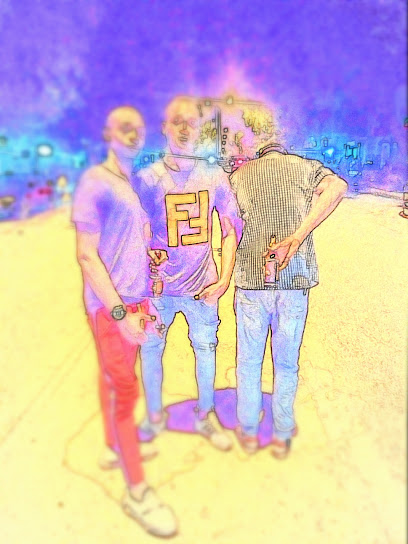
Bar faro faro
Experience the vibrant nightlife of Maroua at Bar Faro Faro, a local bar that promises refreshing drinks and a warm atmosphere.

CATHIE BAR
Experience the vibrant nightlife of Maroua at Cathie Bar, a cozy spot for drinks, local culture, and friendly encounters.

MAROUA
Experience the vibrant culture and warm hospitality of Maroua, a hidden gem in Cameroon offering rich traditions and breathtaking landscapes.
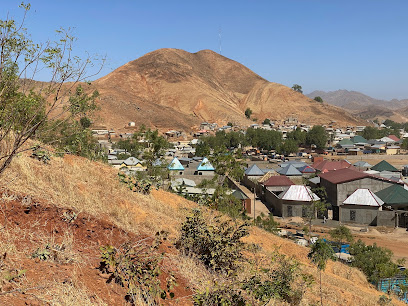
Source Bar de Maroua Palar
Discover the lively charm of Source Bar de Maroua Palar, a top-notch bar where locals and tourists unite for refreshing drinks and unforgettable experiences.
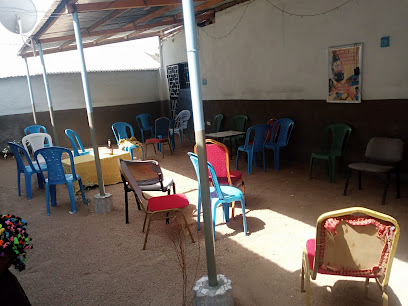
ZOUEKELESSE BAR
Discover the lively Zoue Kelesse Bar in Maroua, where locals and tourists unite for refreshing drinks and vibrant cultural experiences.

Combattants bar
Discover the heart of Maroua's nightlife at Combattants Bar, a vibrant spot for drinks, laughter, and local culture.
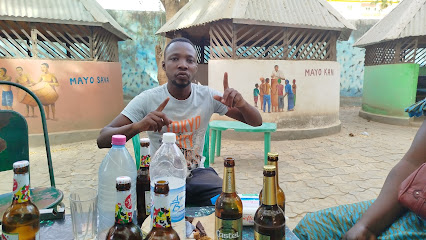
MOUFOU BAR
Dive into the vibrant nightlife of Maroua at Moufou Bar, where local drinks and live music create unforgettable memories.
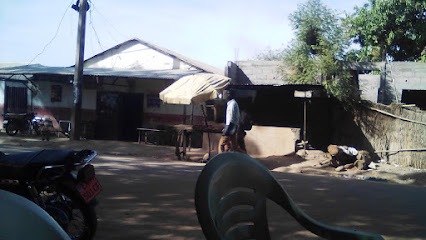
Boire le vin
Discover the vibrant nightlife of Maroua at Boire le vin, where exquisite wines and cocktails meet a warm, inviting atmosphere.

Local Phrases
-
- HelloSalam
[sa-laam] - GoodbyeSannu
[san-nu] - YesEe
[ee] - NoA'a
[a-a] - Please/You're welcomeKu siyara
[ku see-ya-ra] - Thank youNa gode
[na go-de] - Excuse me/SorrySamu
[sa-mu] - How are you?Izayak?
[i-za-yak] - Fine. And you?Nagode. Kana izayak?
[na-go-de. ka-na i-za-yak] - Do you speak English?Zani harshe Turanci?
[za-ni har-she tu-ran-chi] - I don't understandBan fahimci
[ban fa-him-chi]
- HelloSalam
-
- I'd like to see the menu, pleaseIna son menu, don Allah
[i-na son me-nu, don a-la] - I don't eat meatBan ci nama
[ban chi na-ma] - Cheers!Barka da sauri!
[bar-ka da sau-ri] - I would like to pay, pleaseIna son kudi, don Allah
[i-na son ku-di, don a-la]
- I'd like to see the menu, pleaseIna son menu, don Allah
-
- Help!Taimaka!
[ta-i-ma-ka] - Go away!Zo haka!
[zo ha-ka] - Call the Police!Kira Yan Sanda!
[ki-ra yan san-da] - Call a doctor!Kira Babban dokin
[ki-ra bab-ban do-kin] - I'm lostBan gaji
[ban ga-ji] - I'm illIna jin tsoron
[i-na jin tso-ron]
- Help!Taimaka!
-
- I'd like to buy...Ina son sayar...
[i-na son sa-yar] - I'm just lookingBan san lokaci
[ban san lo-ka-chi] - How much is it?Shi ne kudi?
[shi ne ku-di] - That's too expensiveWannan ya fi kudi
[wan-nan ya fi ku-di] - Can you lower the price?Zaka sake kudi?
[za-ka sa-ke ku-di]
- I'd like to buy...Ina son sayar...
-
- What time is it?Yaya lokacin?
[ya-ya lo-ka-chin] - It's one o'clockYayi guda daya
[ya-yi gu-da da-ya] - Half past (10)Da rabi (10)
[da ra-bi (10)] - MorningSafe
[sa-fe] - AfternoonRafi
[ra-fi] - EveningYamma
[yam-ma] - YesterdayJibi
[ji-bi] - TodayYau
[yau] - TomorrowGobe
[go-be] - 1Daya
[da-ya] - 2Biyu
[bi-yu] - 3Uku
[u-ku] - 4Huɗu
[hu-du] - 5Biɗa
[bi-da] - 6Shida
[shi-da] - 7Bakwai
[bak-wai] - 8Takwas
[tak-was] - 9Tara
[ta-ra] - 10Goma
[go-ma]
- What time is it?Yaya lokacin?
-
- Where's a/the...?Ina da...
[i-na da] - What's the address?Yaya lambar?
[ya-ya lam-bar] - Can you show me (on the map)?Zaka nuna mana (a cikin mappin)?
[za-ka nu-na ma-na (a chi-kin map-pin)] - When's the next (bus)?Yaya lokacin na gaba?
[ya-ya lo-ka-chin na ga-ba] - A ticket (to ....)Takiti (zuwa ...)
[ta-ki-ti (zu-wa ...)]
- Where's a/the...?Ina da...
History of Maroua
-
Maroua, located in the Far North Region of Cameroon, has a rich history that dates back centuries. The area was originally settled by various ethnic groups, including the Fulani, Mafa, and Tupuri people. These groups contributed to the diverse cultural tapestry that characterizes Maroua today. Archaeological evidence suggests that human habitation in the region dates back to prehistoric times, with ancient artifacts and tools providing glimpses into the lives of early settlers.
-
In the 19th century, Maroua became an important center within the Fulani Empire, which was established by Modibo Adama. The Fulani, a nomadic pastoralist group, expanded their influence across the region through a series of military conquests and the spread of Islam. Maroua served as a key administrative and trading hub during this period, facilitating the exchange of goods, ideas, and cultural practices.
-
Maroua came under German colonial rule in the late 19th century after the Berlin Conference of 1884-1885, which divided Africa among European powers. The Germans established administrative structures and infrastructure in Maroua, including roads and buildings that still stand today. During this period, the city became an important center for German colonial administration and economic activities, particularly in agriculture and trade.
-
Following Germany's defeat in World War I, Maroua, along with the rest of Cameroon, was placed under French mandate by the League of Nations. The French continued to develop the city's infrastructure and educational institutions, further integrating Maroua into the broader colonial economy. The city played a significant role in the movement towards Cameroon's independence, which was achieved in 1960. Post-independence, Maroua has continued to grow as a regional center for commerce, education, and culture.
-
Maroua is renowned for its cultural diversity, with numerous ethnic groups coexisting in the city. The Fulani, Mafa, and Tupuri, among others, contribute to a vibrant cultural landscape marked by traditional music, dance, and festivals. The city is also known for its artisanal crafts, including pottery, weaving, and leatherwork, which are sold in bustling markets such as the Grand Marché. Maroua's cultural richness is further highlighted by the presence of traditional architecture, with homes and buildings reflecting the unique styles of the various ethnic groups.
-
Today, Maroua is a dynamic city that blends its rich historical heritage with modern developments. It serves as the capital of the Far North Region and is a vital economic and educational hub. The city is home to the University of Maroua, which attracts students from across Cameroon and beyond. Despite facing challenges such as economic disparities and regional instability, Maroua continues to thrive, offering visitors a unique glimpse into the past and present of this fascinating region.
Maroua Essentials
-
Maroua is located in the Far North Region of Cameroon. The nearest international airport is Garoua International Airport, approximately 100 kilometers away. From Garoua, you can take a taxi or a bus to Maroua, which typically takes around 2 to 3 hours by road. Alternatively, you can fly into Douala or Yaoundé and then take a domestic flight to Garoua or N'Gaoundéré, followed by a road trip to Maroua.
-
In Maroua, local transportation options include taxis, motorcycle taxis (benskins), and minibuses. Taxis are a common and relatively inexpensive way to get around the city. Motorcycle taxis are a faster, albeit less safe, alternative for short distances. Minibuses operate on fixed routes and are a cost-effective choice for traveling within Maroua and to nearby towns. Renting a car is also an option but be prepared for varying road conditions.
-
The official currency in Cameroon is the Central African CFA Franc (XAF). Credit cards are not widely accepted in Maroua, so it is advisable to carry cash. ATMs are available in the city, but it's recommended to withdraw sufficient cash before venturing into rural areas. Currency exchange services are available at banks and some hotels.
-
Maroua is generally safe for tourists, but caution is advised. Avoid walking alone at night and stay vigilant in crowded areas. Some neighborhoods have higher crime rates, particularly for petty theft targeting tourists. It's best to avoid the outskirts of the city after dark. Always secure your belongings and be cautious when using motorcycle taxis.
-
In case of emergency, dial 117 for police assistance or 118 for medical emergencies. Maroua has several medical facilities, including the Regional Hospital. It is advisable to have travel insurance that covers medical emergencies. Pharmacies are available in the city for over-the-counter medications. For serious medical issues, evacuation to a larger city may be necessary.
-
Fashion: Do dress modestly, especially in rural areas and religious sites. Avoid wearing revealing clothing. Religion: Do respect local customs and traditions. Remove your shoes when entering mosques and refrain from photographing people without their permission. Public Transport: Do be respectful and courteous. Don't argue with drivers over fares; agree on a price before boarding. Greetings: Do greet people with a handshake. A smile and a friendly 'bonjour' go a long way. Eating & Drinking: Do try local dishes and accept food offerings graciously. Don't refuse hospitality, as it is considered impolite.
-
To experience Maroua like a local, visit the vibrant Maroua Central Market, where you can buy fresh produce, textiles, and traditional crafts. Engage with locals, who are often friendly and willing to share insights about the city's culture and history. Don't miss the annual Festival of Arts and Culture (FESTAC), which showcases traditional music, dance, and art. For a unique experience, explore the Mandara Mountains and visit nearby traditional villages.
Nearby Cities to Maroua
-
Things To Do in Garoua
-
Things To Do in N'Djamena
-
Things To Do in Maiduguri
-
Things To Do in Yola
-
Things To Do in Ngaoundéré
-
Things To Do in Jos
-
Things To Do in Kano
-
Things To Do in Carnot
-
Things To Do in Foumban
-
Things To Do in Bertoua
-
Things To Do in Bamenda
-
Things To Do in Mbouda
-
Things To Do in Bafoussam
-
Things To Do in Bafia
-
Things To Do in Dschang





